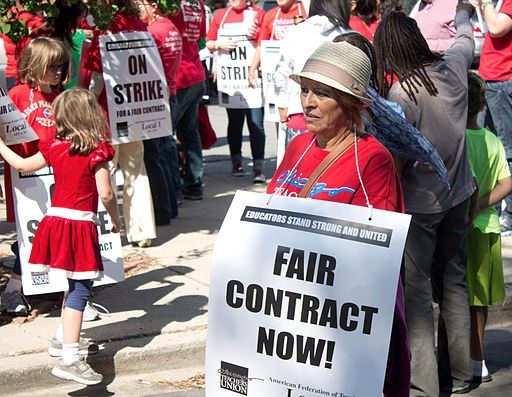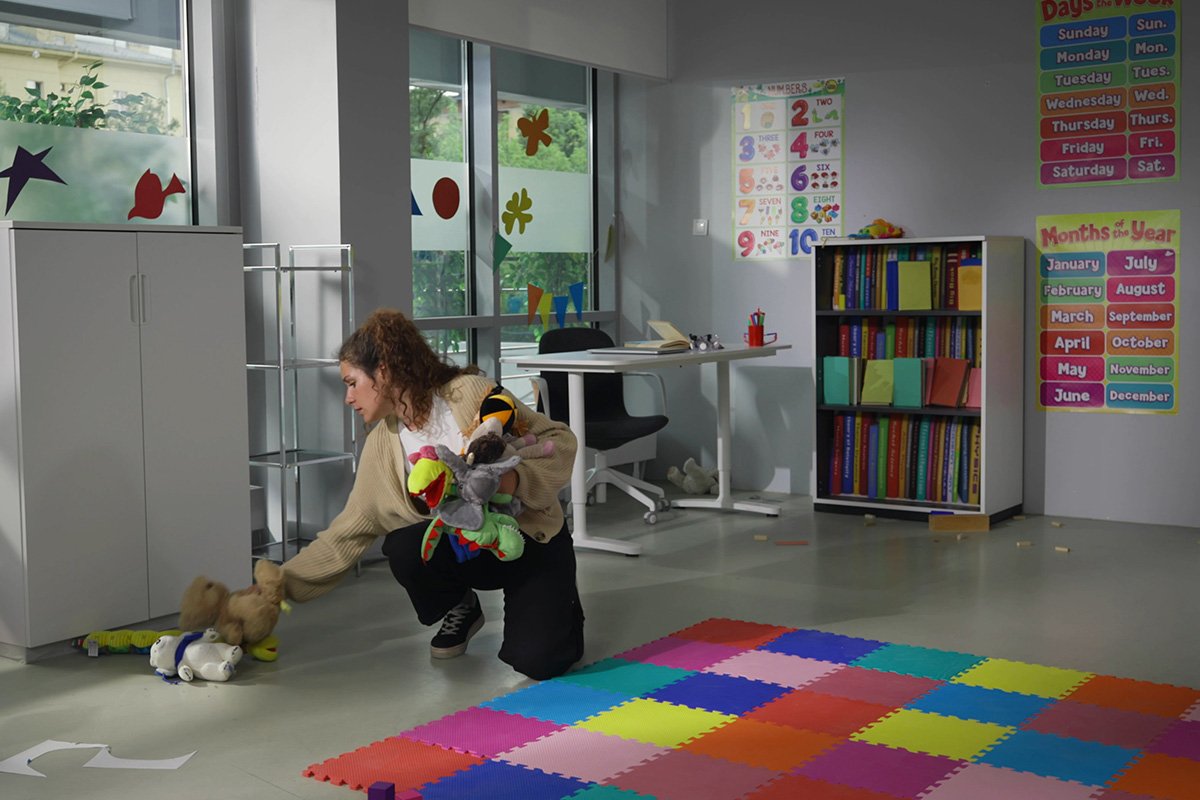
March 29, 2017; Chicago Tribune
For school reformers, teachers’ unions are the enemy. Just this past week, former Florida governor Jeb Bush said in a speech to the American Federation for Children that school reform is being held back by “powerful interests that challenge any kind of change. The simple fact is that the teachers union and others that want to protect the economic interest of the adults in this massive system are winning right now. And…we need to fight them because they’re not going to change.” When Fox News looked for the cause of failing public schools, they found teachers unions, those protectors of bad teachers and supporters of failed teaching methods, as the culprits.
Who’s to blame for America’s failing schools? Teachers unions. America’s largest teachers’ unions—the National Education Association (NEA) and American Federation of Teachers (AFT)—are notorious for protecting underperforming teachers through generous tenure policies.
Little of the available data suggests that this picture is true and that unions and badly performing schools go together. Schools in highly unionized states like Massachusetts and New Jersey regularly rank at the top of test-based public school rankings, outshining states with very low levels of unionization. Yet for reform advocates, the belief that unions harm schools remains strong.
In this context, it seems sensible that most charter schools, central to the reform strategy championed by President Trump and Education Secretary DeVos, are not unionized. The pay scales, benefit packages, and working rules that come with labor contracts are perceived as bureaucratic impediments that hold back educational innovation and excellence.
Recently, unions have begun to not only advocate against the school reform agenda but increase their efforts to unionize charter school teachers. The Chicago Tribune looked at how that new focus is playing out in their city. Karen Lewis, President of the Chicago Teacher’s Union told the Tribune that the focus of organizing was “not about destroying charter schools. Charter schools are here; they’re not going anywhere. So the key is, how do you make them a bitter pill to their management companies? It’s the management companies we have the issues with, not the charter teachers, not the students, not the parents. The key is, organize people to fight for fairer conditions of work, and then that’s good for .”
Sign up for our free newsletters
Subscribe to NPQ's newsletters to have our top stories delivered directly to your inbox.
By signing up, you agree to our privacy policy and terms of use, and to receive messages from NPQ and our partners.
Union leaders say their efforts to organize are driven by more than self-interest. Certainly, salaries are an important issue, as charter schools often pay their teaching staff less than unionized teachers get in adjacent traditional public schools. But union advocates say that economic benefits are not the only things unions bring to their schools. Robert Bloch, an attorney who has been close to one organizing effort in Chicago, told the Tribune, “Unionized charters are creating a more hospitable environment for teachers.” The Chicago Alliance of Charter Teachers described the value of a contract they negotiated as strengthening the “teacher voice in decisions that affect students, providing safe and healthy working and learning conditions, and putting in place a fair and collaborative teacher evaluation system. Class size limits are held to 28 students, and the agreement includes language that provides for more meaningful prep time for teachers.”
Today, only a small number of charter schools are unionized. In Chicago, a city with a very strong labor movement, only about 12 percent of its more than 100 charter schools have a contract in place. Nationally, unions represent less than 10 percent of charter teachers. If the efforts of the two national teachers’ unions are successful, that number will grow and the dynamic of charter education will change.
From the perspective of union supporters, students and teachers will gain ground. Having a union will empower professional educators to speak assertively about the changes needed to improve their ability to teach. Those managing a charter, sometimes with little educational training or experience, will come to see the value of a strong professional voice within their school.
It is a voice some may not want to hear. In response to a campaign to organize the 28-school Alliance College-Ready Public Schools charter network, the Alliance’s leadership issued a statement claiming that a union will harm the schools collaborative environment.
We respectfully disagree with the assertion that unionization with UTLA would help advance educational opportunities for our students. We do not think being a part of the ongoing antagonism between UTLA and LAUSD and limiting our flexibility and autonomy would be beneficial to our students and our teachers.
The success of the unions’ efforts would be an important new force complicating the desire of reformers to dismantle traditional public schools. If teachers, charter and public, are part of a common union movement, they will have a shared voice in the direction of educational improvement—and can only be a good thing.—Martin Levine












